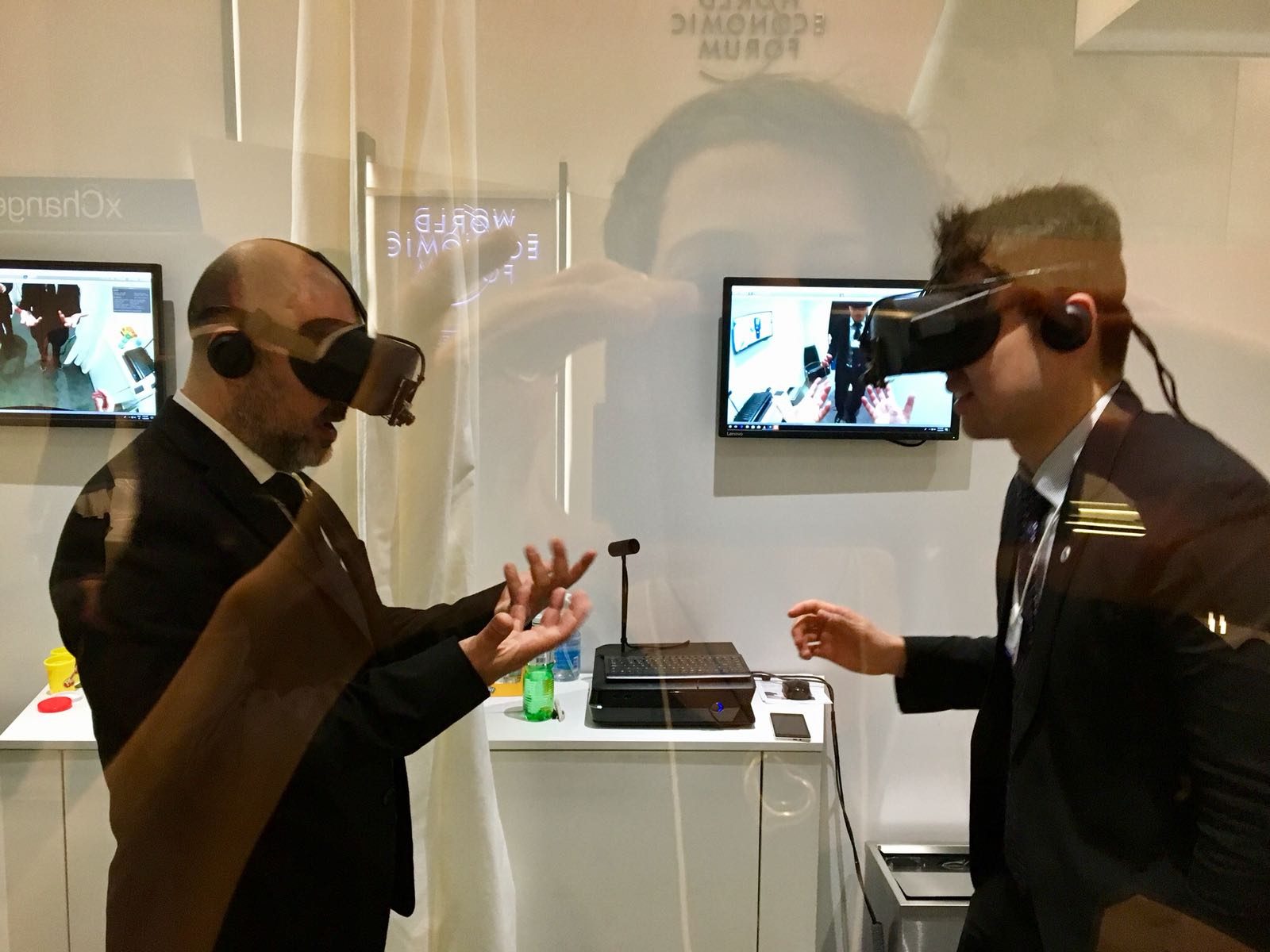
It is a WhatsApp call: "Today you will freak out. I’ve had a White Mirror experience,” says Josep M. Ganyet. "It is like Black Mirror technology but used to do interesting things and raise awareness." The VIA Empresa contributor is on a high about the technology he wants to talk about on Thursday. We get the feeling that the different experiences he has had at the World Economic Forum (WEF) in Davos have reaffirmed his belief that we are living in extraordinary times.
The first thing that makes an impression on him was Shared Studios, which places containers in different parts of the world and from which it is possible to connect to another container, in another part of the world, and to get to know others via a screen. "I spoke to some guys in Myanmar, young guys, I told them I was a teacher, and that there is a lot of snow. They don’t know who you are nor do you know who they are, but it is an amazing way of connecting to another part of the world," he points.
Technology branded in Barcelona
BeAnotherLab is the second of the impressive experiences on this day in the WEF and, to Ganyet’s surprise, it has links with Barcelona. "Using virtual reality, you put yourself in the shoes of another. I exchanged places with a Chinese congressman and it was amazing, because I looked down at my hands, and they were his; I tied my tie and it was his tie!" he says. "What’s more, it turns out that the people who did the project spent time at the Pompeu Fabra University in Barcelona as students."
Ganyet highlights the Shared Studios project, which links places through connected containers
The third technological experience of the day was linked to History, writ large. "A survivor of the Nazi Holocaust spoke, about the Warsaw ghetto, about the Jewish police and about how his family died, as part of a project from the University of California to record witness accounts and pass them onto the new generations."
Science and more science
Technology and science, technology unleashed, critical thought and education, the technological society... concepts at Davos that dance around the brain and in Ganyet’s talk, excited by the emotions and lessons learnt. He brings attention to comments made on the second day by the director of CERN, Fabiola Gianotti, one of the WEF’s co-presidents this year: "Gianotti speaks about science as a unifier and he says that as long as we speak in terms of objective facts and not opinions we can understand each other."

The Nobel prizewinner Malala Yousafzai | Creative Commons Flickr
The impact of Gianotti’s talk continued on Thursday, as the head of CERN took part, with Canadian president Justin Trudeau and Nobel prizewinner Malala Yousafzai, in the seminar Creating a Shared Future through Education and Empowerment. "They talked about education, about the importance of science and Malala made the comment that he wished to see all the girls in his country in school... That opens up your brain, but in a good way!" he admits.
Among the line-up of major speakers, Ganyet highlights Gary Barker, Michael Hanley and Joanne Lipman in the seminar How Do We Stop Sexual Harassment?; the illustrated criticisms of capitalism by Patrick Chappatte in Left Behind in the United States; the bluntness of the Nobel prizewinning economist Joseph E. Stiglitz denouncing the fact that "Apple and Ireland are stealing taxes that Apple does not pay to Europe," with the Irish finance minister, Paschal Donohoe, present; or the difficulties of the US Secretary of the Treasury, Steven Mnuchin, to defend the dollar’s stability in The Remaking of Global Finance.
And lastly, he points to the step forward taken by Theresa May, the UK prime minister, in a business-friendly speech in which she showed her aim of attracting talent and investment: "She spoke about the free market, data science, technology as a foundation for human progress; about startups, about how there is a new startup every week in the UK." Ganyet compares it with the speech by King Felipe, on Wednesday, saying "she doesn’t have to explain that her country is a democracy, she came here looking for investment."
Theresa May mentions @telegram messaging app as one app used by terrorists.
— Josep M. Ganyet (@ganyet) 25 de enero de 2018
At @wef in #Davos.
Ganyet says that the experience is literally "amazing". We are lucky that he wants to share it with us.